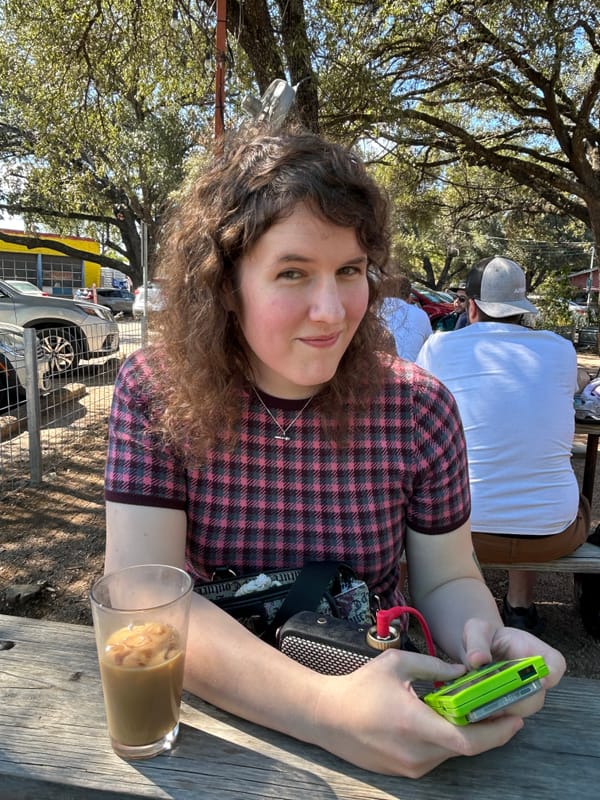Bad News and a Fake College

Complaining about the New York Times is an unvanquishable media pastime, but ultimately as useful as slingshotting rocks at a zeppelin. The volley might annoy the crew and result in a few light directional changes, but if the whole overstuffed galoot finally takes a nosedive it will be due to some sort of internal fracas and probably not an external one. In the meantime, you may be certain that they will continually breach their own ethical flight path.
Just recently, for instance, NYT reporter Eric Lipton argued against common sense and object permanence that the Qatari royal family’s gift to Donald Trump of a Boeing 747-8 was something less resembling corruption and more like, well, a thoughtful gift that you might bring to a baby shower. It doesn’t matter — the Times isn’t often interested in describing reality, and both subscribers and haters with free library access (me) can do nothing but ground our teeth into chalk.
This must especially be frustrating for serious politics commentators, but the Austin Tadarida is a blog/newsletter/website about Austin, and is more concerned not with large national issues per se but rather about the continually absurd notion that twelve people who moved here five years ago now unofficially run the city. It’s true that one of those people is the richest man in the world, but it’s also true that this sieg-heiling, puffy, would-be genius (he’s stupid) is manifestly hated locally:
For his Times story, reporter J. David Goodman profiles how the entire city is “grappling uneasily” with its status as being the place where Elon Musk now lives. Goodman’s piece adopts a tone familiar to media critiques concerning Austin — there’s an amazement at the pace and change of the city, some sprinkling of dirt over the coffin of “weird,” and a bit of subtle smugness at our comedown. H.W. Brands is quoted saying that, “If you say ‘Keep Austin Weird’ to somebody under the age of 40, they would think of that as an antique-y slogan, like Ye Old Shoppe,” and “It doesn’t have any resonance for their lived experience of Austin.”
I submit that a septuagenarian who wrote a “fond” memoir of Ronald Regan (according to the Times, no less) may not be the best source on all things weird. Just look around — interesting things are happening. No one expects Brands to be the ambassador of what the kids are thinking in Austin, except for Goodman, apparently. One person interviewed does think Austin is 100% better than it used to be, but it’s entirely fair to say that a (the?) winner of the “2020 Texas Real Estate Icon award” from the Texas Commercial Real Estate News Source is probably not on the cutting edge. We do get an unremarkable quote from former mayor and COVID-Cabo refugee Steve Adler, for which he is awarded one huge photo in the spread. City councilwoman Vikki Goodwin admits to a frankly embarrassing bit of cranial intrigue wherein she imagines someone rammed into her Tesla (not even a Cybertruck) on purpose when, of course, it was an accident.
I’d like to conclude, though, by focusing not on Goodwin's delusion but on another — the high hopes afforded to a very special kind of school. Or, as Goodman writes, “a new, contrarian institution of higher learning looking to compete with the University of Texas at Austin, the University of Austin.”

“Looking to compete” is such a magisterial way of describing the relationship between the two schools. It’s technically true, but in the same way your most deluded cousin believes with just a little more practice they can outscore LeBron James. So how fares anti-woke U? Curiously, we must turn to Quillette — whose ‘just asking racist questions’ ethos should compliment UATX perfectly (are the girls fighting?) — for the latest update. In her piece, “Is the University Of Austin Betraying Its Founding Principles?” Ellie Avishai expresses disappointment that her Mill Center (ponderously named in honor of John Stuart Mill) was dumped by that University after she posted a very “hmm interesting, both sides make a point” comment on LinkedIn, of all places, regarding an article on D.E.I.
Unfortunately, her doomed onboarding with UATX could have been avoided had Avishai’s critical eye been a little more open in the days and weeks leading up to grafting her project onto the university. The only positive writing she links to about UATX as a “bold initiative” is from some weird-ass blog called Mercator that has since gone kaput (no biggie — there’s nothing interesting happening to write about these days). She seems to have been almost entirely swayed by UATX’s own constant refrain that they are obsessed with truth (more on that below). However, to quote John Stuart Mill myself, “There are many truths of which the full meaning cannot be realized, until personal experience has brought it home.”
Avishai learned a hard lesson in advertising versus action. UATX can print shirts calling it “THE Only Truth-Kissing University in Austin,” but their primary interest is in playing the part of the heterodox hero, and teaching comes in at a distant second (or maybe third, what with their intense efforts to impress rich donors). Avishai didn’t get spat out by anti-orthodoxy orthodoxy so much as steamrolled by culture warriors dressed up in academic regalia.
Her article has strong, “You can’t fire me — well you did — but I quit anyway” energy, which is unappealing, and we won’t go into the push-and-pull of recriminations of the Mill Center getting cancelled. Instead, I would like to present two ongoing guides, one for the media and one for curious academics/laypeople, both for their consideration when it comes to writing or thinking about the University of Austin in the future.
For the Media:
You may be impressed that UATX has “Austin” in its name, has a seal, and refuses to kowtow to woke capitalization rules (from their FAQ):
Do not be fooled! The proximity of the University of Texas at Austin to the University of Austin is almost entirely linguistic and geographic. Conflating the two may result in some serious Ghostbusters/The Real Ghostbusters confusion for your audience. Preface every mention of UATX by saying it is an entirely grievance-driven organization which co-founder Bari Weiss admits is designed as a “genuinely safe space” for people who spend most of their time whining about safe spaces as a concept. In other words, it is a comfy little box for students (but not faculty, apparently, who aren't so safe) afraid that the letters in the acronym “D.E.I.” could switch places at any moment and literally kill them. Hopefully by 2027 the UATX building will be retrofitted into a more constructive use of real estate (a large broom depot? Not sure about the zoning rules there).
For UATX-curious, Would-be Students and Faculty:
Like Avishai, you may be initially smitten by the promises of a university whose FAQ also states that they are “committed to the fearless pursuit of truth” and who stand for: “In a word: truth. In a few more words: the fearless pursuit of truth.” Unfortunately, their “truth” is just repeating that word over and over while trotting out books you can buy at Barnes & Noble and repackaging their contents as “forbidden.” This is not a serious place for serious people! Save yourself money and time and consider a similar, local alternative!
The insistence that Austin is washed will continue to blare from the Times and their ilk until weirdness improves, or it is at least finally noticed. When it comes to the latter, we will do our part.




